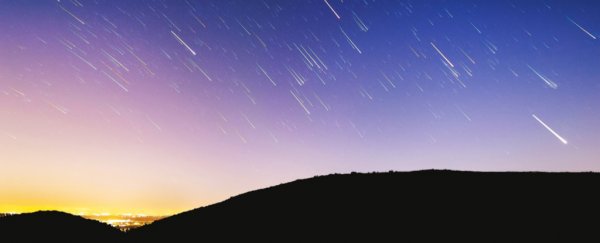Scientists are predicting a rare meteor outburst this week that may be brief but incredibly intense.
A brilliant flurry in the sky near the Unicorn constellation is expected Thursday night over the eastern half of North America and all South America.
The action should unfold early Friday morning over the western portions of Europe and Africa.
Hundreds of shooting stars may be visible as Earth plows through the dusty tail of an unidentified comet.
The alpha Monocerotids - named after the constellation Monoceros or the Unicorn - most recently produced an outburst in 1995.
NASA's Ames Research Center scientist Peter Jenniskens and the Finnish Fireball Networks' Esko Lyytinen anticipate another good show.
They encourage stargazers to look up, but get out early because peak viewing time is short.
A burst of meteors from the Unicorn ... tonight!
— EarthSky (@earthskyscience) November 21, 2019
Details: https://t.co/meslc4Pj3o
At its peak - centered on 04:50 UTC on November 22 (11:50 p.m. EST on November 21) - the shower might produce a burst of 100 meteors in just 15 minutes.
Memorable and fun! Catch it if you can. pic.twitter.com/0WzupC9X7E
© Associated Press
